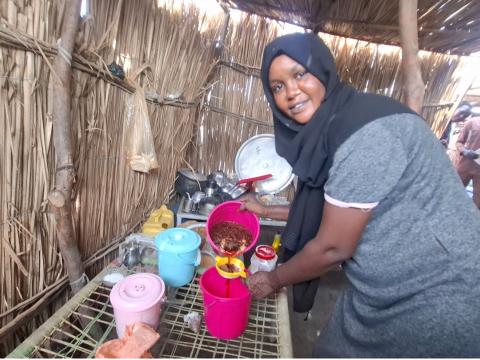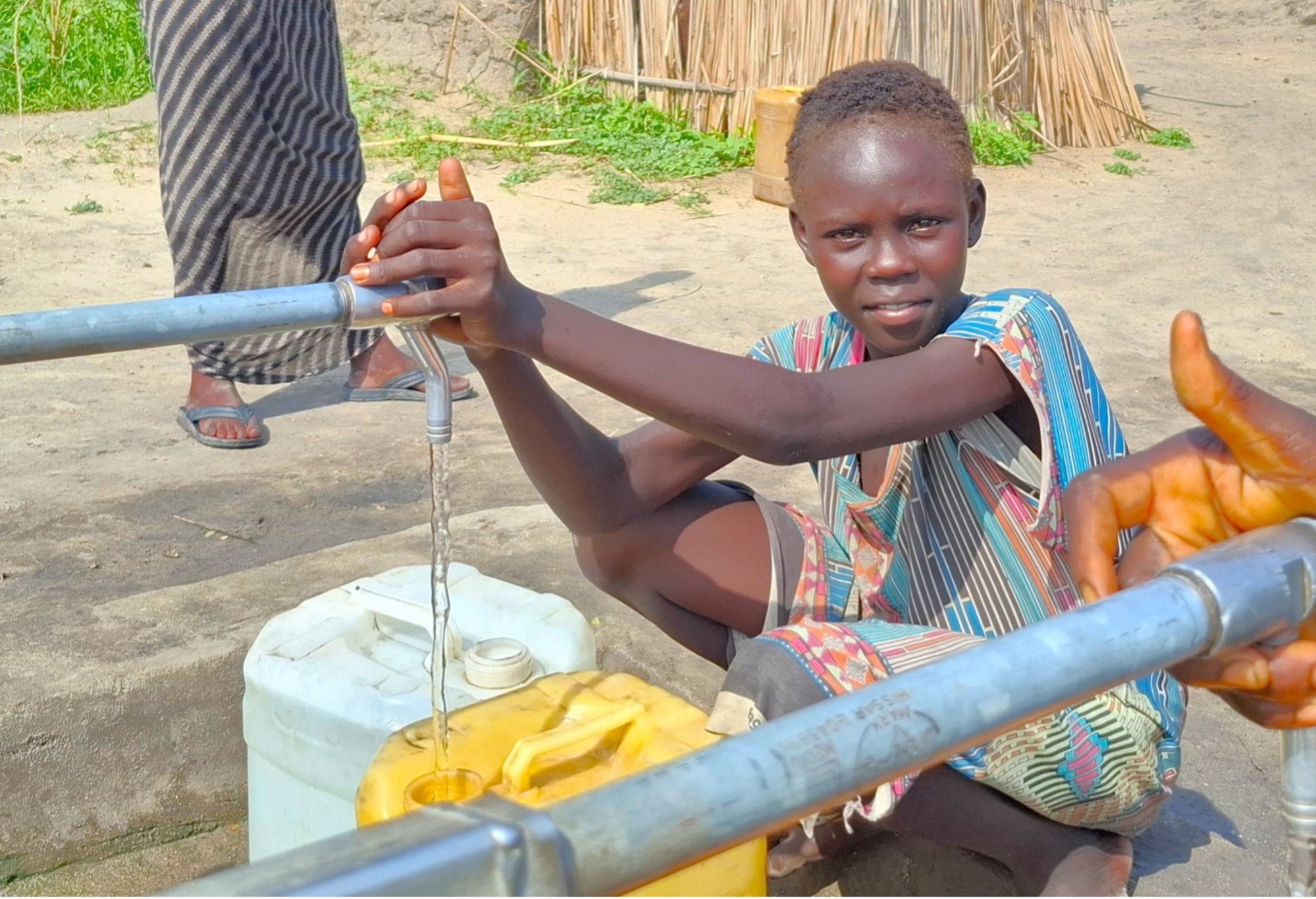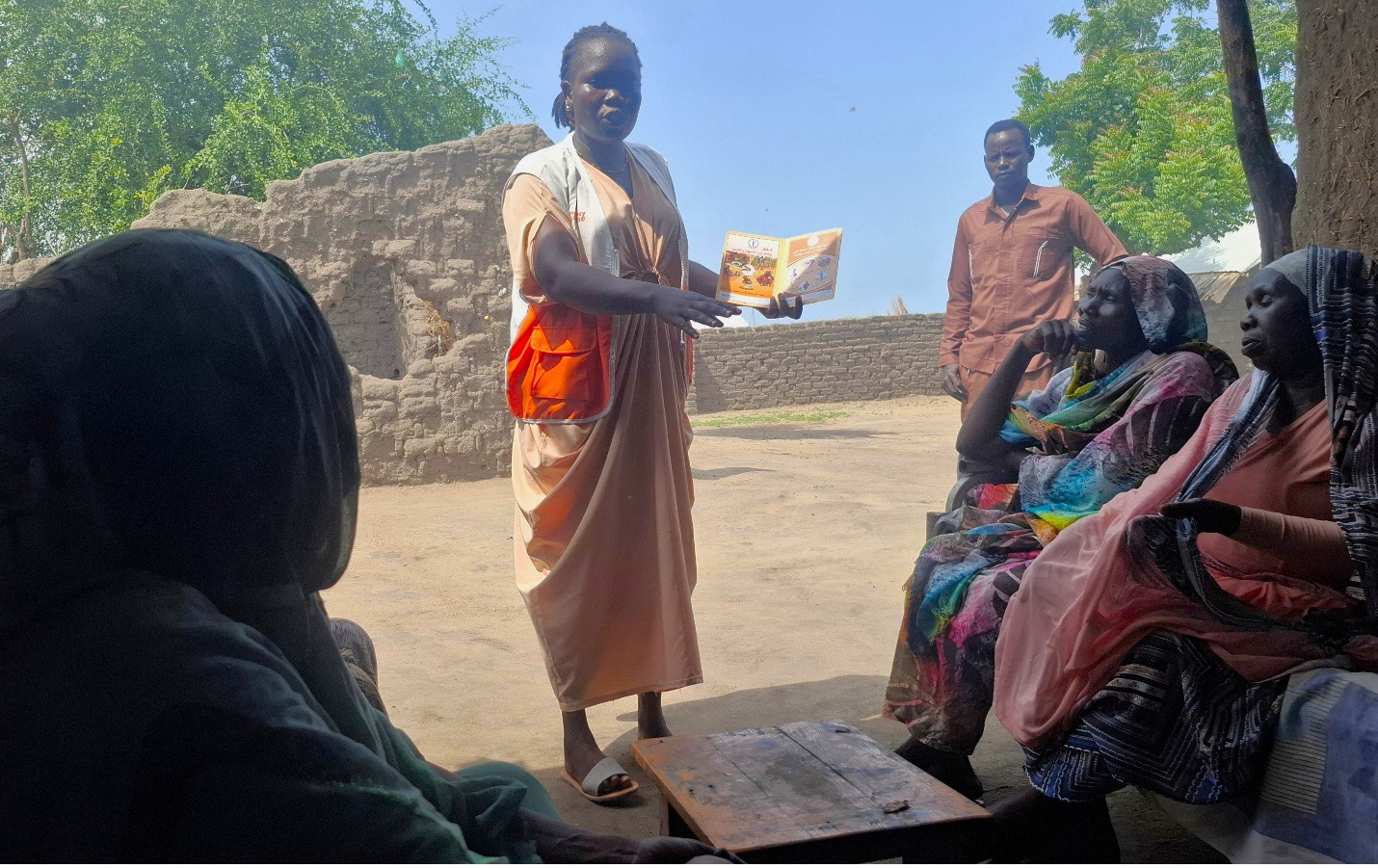Against all odds: How health and hygiene campaigns are empowering Sudanese refugee mothers to defeat Cholera in the camp

In Joda, a small border town just 37 miles from Renk in South Sudan’s Upper Nile State, displaced families living in the transit settlement—like Nasime’s—are slowly finding renewed hope. Despite the lingering threat of cholera across parts of the country, especially in nearby Renk, mothers like Nasime are proving that knowledge can be as powerful as medicine. Through simple but life-saving hygiene and health practices, they’re keeping their children safe, curbing outbreaks, and building resilience even in the harshest conditions.
Nasime Abdulle Kahrim, 28 years old and the mother of Nura, arrived in Joda in July 2024 after a long and difficult journey that involved travelling by bus and walking part of the way on foot. She runs a small tea and juice business at the Joda Transit Settlement, offering hibiscus juice, a popular refreshment in Sudan and South Sudan.
In September 2024, a cholera outbreak in Renk County became a devastating reality for families like Nasime’s. 'Many lives were lost, and countless families mourned their loved ones,' Nasime recalls. Fear spread rapidly throughout the community, and Nasime was among those deeply concerned for her own life and that of her daughter.
In response to the outbreak, community workers and hygiene promoters from various organisations, including World Vision, stepped in to raise awareness that promotes sanitation and hygiene practices. They also distributed clean water containers and soap, helping ensure that water collected from the water yards remained safe for drinking and household use.

“The issue wasn’t the lack of clean water but rather the contamination caused by poor storage practices and unhygienic behaviours such as open defecation,” according to Nasime.
Today, Joda continues to improve. Community workers and hygiene promoters continuously conduct door-to-door cholera awareness campaigns, educating families on safe and preventative methods. This activity has built hopes for Nasime and many people in Joda. She now takes extra precautions when preparing her juice: boiling the water, washing her hands with soap, storing clean water in covered containers, and encouraging proper toilet use, especially among children.

World Vision South Sudan continues to address the urgent needs of communities affected by cholera and to prevent further outbreaks through the World Vision Nexus Accelerated Fund (NAF). The response includes distributing essential hygiene supplies and implementing hygiene and sanitation awareness campaigns across Upper Nile, Northern Bahr el Ghazal, and Central Equatoria States.
In addition, through funding from UNICEF, World Vision South Sudan successfully completed a major water project in Joda-Renk, Upper Nile State, constructing a 4,000-metric-ton water delivery system. This system now provides safe, clean water to more than 9,000 residents, significantly reducing the risk of cholera and improving the health and wellbeing of Joda’s most vulnerable children and families.
Story and photos by Alan Leju Roba/World Vision South Sudan